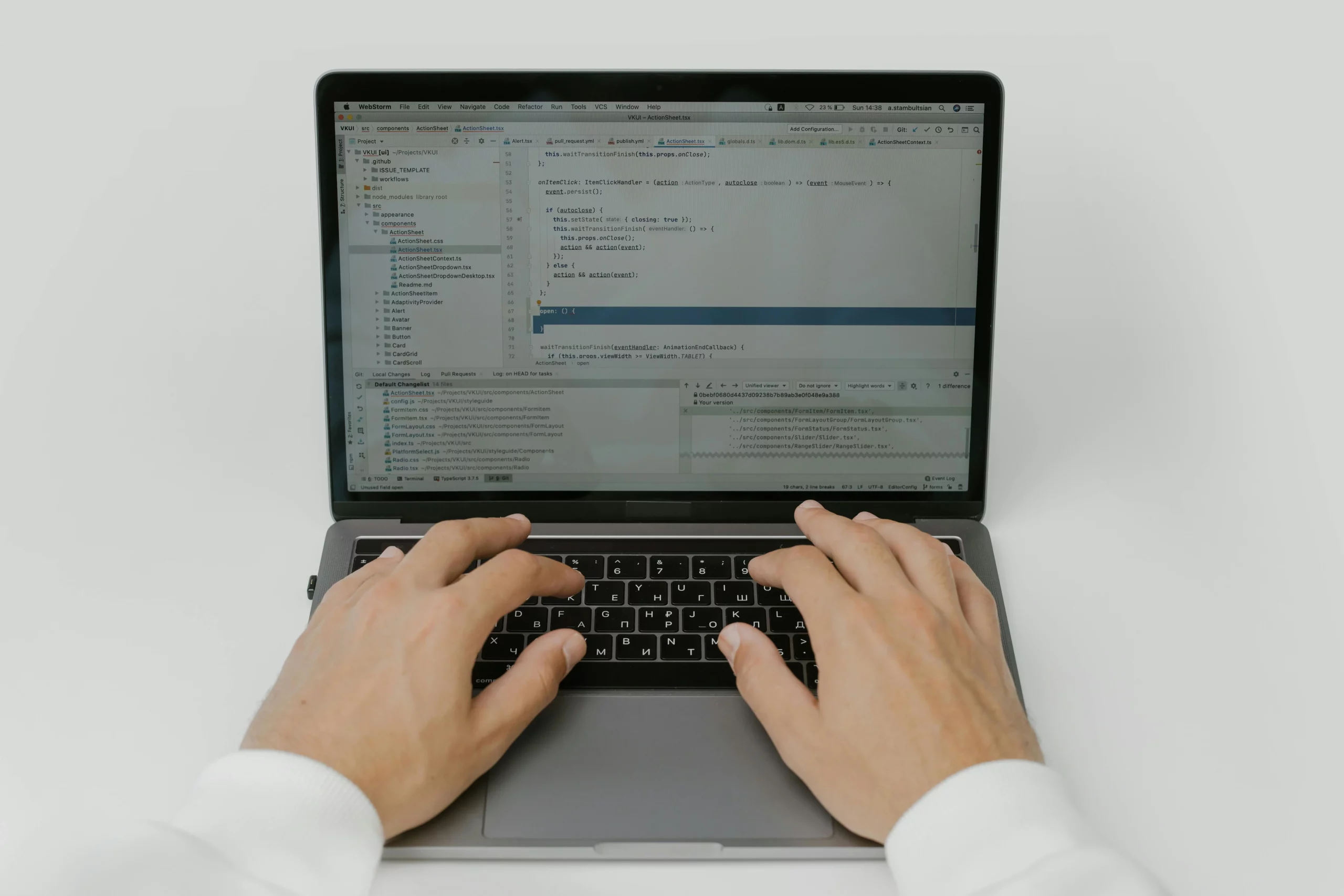
Make talent quality your leading analytic with skills-based hiring solution.

Networking refers to the interconnected system of devices and components that facilitate communication and data exchange between computers and other electronic devices. It encompasses the hardware, software, protocols, and technologies used to establish and maintain connections within a network, whether local or global. Networking enables the sharing of resources such as files, printers, and internet access, as well as the transmission of data between devices, enabling collaboration, information retrieval, and remote access to services. From traditional wired networks to modern wireless and cloud-based infrastructures, networking plays a pivotal role in enabling seamless communication and connectivity in today’s digital world.
Cybersecurity focuses on protecting computer systems, networks, and data from unauthorized access, cyberattacks, and malicious activities. It encompasses a range of strategies, technologies, and practices designed to safeguard digital assets, maintain confidentiality, integrity, and availability, and mitigate the risks posed by cyber threats. Cybersecurity professionals employ various tools and techniques, including firewalls, encryption, intrusion detection systems, and security protocols, to detect, prevent, and respond to security incidents and breaches. As cyber threats continue to evolve in sophistication and frequency, cybersecurity remains a critical aspect of modern computing, ensuring the confidentiality, integrity, and reliability of digital information and infrastructure.
A Cybersecurity Assurance Engineer is responsible for ensuring the security and integrity of an organization’s systems and networks by implementing and managing cybersecurity measures. This role involves conducting risk assessments, identifying vulnerabilities, and developing strategies to mitigate security risks. Cybersecurity Assurance Engineers also monitor and analyze security incidents, respond to breaches, and implement security controls to prevent future threats.
Glider AI’s technical skills tests evaluates the candidates on the following top skills:-
Cybersecurity | Vulnerability Scanning | Ethical hacking | IT Risk management
As the highest-ranking executive responsible for cybersecurity within an organization, a Chief Information Security Officer (CISO) plays a pivotal role in developing and implementing comprehensive cybersecurity strategies. They oversee the design, implementation, and management of security protocols, ensuring the protection of sensitive information and digital assets. CISOs collaborate with other senior executives to align cybersecurity initiatives with business objectives and regulatory requirements.
Glider AI’s technical skills tests evaluates the candidates on the following top skills:-
IT risk management | Cybersecurity | Regulatory compliance requirements | Linux | Network Engineering
Application Security Engineers are specialists tasked with safeguarding software applications from cyber threats and vulnerabilities. They work closely with development teams to integrate security best practices throughout the software development lifecycle, from design and coding to deployment and maintenance. These engineers conduct thorough security assessments, identify potential risks, and develop robust security measures to mitigate vulnerabilities.
Glider AI’s technical skills tests evaluates the candidates on the following top skills:-
Linux | Cloud Computing Concepts | Network Engineering | Coding – C/ C++/ Python/ Java
Ethical Hackers, also known as white-hat hackers, are cybersecurity professionals who specialize in identifying and addressing vulnerabilities in computer systems, networks, and applications. Unlike malicious hackers, ethical hackers use their skills and knowledge to uncover security weaknesses with the permission of the system owners, with the ultimate goal of improving security defenses. They simulate real-world cyberattacks to assess the effectiveness of existing security measures and provide recommendations for enhancing protection against potential threats.
Glider AI’s technical skills tests evaluates the candidates on the following top skills:-
Linux | Web Application Security | Information Security Threats | Penetration Testing | Coding – Perl/ Python/ Ruby
Penetration Testers are cybersecurity professionals responsible for evaluating the security of computer systems, networks, and applications by simulating real-world cyberattacks. Their primary objective is to identify vulnerabilities and weaknesses in an organization’s defenses before malicious hackers can exploit them.
Glider AI’s technical skills tests evaluates the candidates on the following top skills:-
Information Security | Threat Modeling | Penetration Testing & Platforms | Security Assessment Tools | Coding. – Python/ Bash/ Java/ Ruby/ Perl
Cloud Security Specialists are cybersecurity professionals who specialize in protecting cloud computing environments from security threats and vulnerabilities. They are responsible for designing, implementing, and managing security measures to safeguard data, applications, and infrastructure hosted on cloud platforms. Cloud Security Specialists assess risks associated with cloud services and develop strategies to mitigate potential security breaches, ensuring compliance with industry standards and regulatory requirements.
Glider AI’s technical skills tests evaluates the candidates on the following top skills:-
Cloud Service Architecture |Penetration Testing | Access Control Systems | Application | Security Testing | Open Source Infromation Collection Tools
Network Security Engineers are professionals responsible for safeguarding an organization’s network infrastructure from cyber threats and unauthorized access. They design, implement, and manage security measures to protect networks, including firewalls, intrusion detection systems, and virtual private networks (VPNs). Network Security Engineers conduct regular security assessments and audits to identify vulnerabilities and ensure compliance with security policies and regulations.
Glider AI’s technical skills tests evaluates the candidates on the following top skills:-
Network Engineering | Network Design | Networking Protocols
Information Security Analysts play a pivotal role in safeguarding an organization’s sensitive information and digital assets from cyber threats and attacks. They assess security risks, monitor network traffic, and analyze security logs to detect and respond to security incidents promptly. Information Security Analysts conduct vulnerability assessments and penetration testing to identify weaknesses in the organization’s security posture and recommend remediation measures.
Glider AI’s technical skills tests evaluates the candidates on the following top skills:-
Secuirty Incidents | Risk Assessments | Response Plans | Compliance Testing
Malware Analysts are cybersecurity professionals responsible for analyzing and dissecting malicious software, also known as malware, to understand its behavior, functionality, and potential impact on computer systems and networks. They utilize specialized tools and techniques to reverse-engineer malware samples, extract indicators of compromise (IOCs), and identify patterns and signatures to detect and mitigate future threats.
Glider AI’s technical skills tests evaluates the candidates on the following top skills:-
Windows | Linux/ Unix | Malware | Protection Tools | Coding – C/C++
Computer Forensics Analysts are cybersecurity professionals tasked with investigating cyber incidents and digital crimes by analyzing digital evidence from computers, storage devices, and networks. They employ forensic tools and techniques to collect, preserve, and examine digital artifacts such as files, logs, and system metadata to reconstruct events and uncover evidence of unauthorized activities or security breaches. Computer Forensics Analysts follow established protocols and legal guidelines to ensure the integrity and admissibility of digital evidence in legal proceedings.
Glider AI’s technical skills tests evaluates the candidates on the following top skills:-
Network Engineering | Cybersecurity law and criminal investigation | Coding – C/C++/Java/Python/Perl/ PHP/Bash/ Ruby
Network/System Engineers are IT professionals responsible for designing, implementing, and maintaining computer networks and systems within organizations. They ensure the seamless operation and optimal performance of network infrastructure, including routers, switches, firewalls, and servers, to support business operations and communication needs. Network/System Engineers troubleshoot network issues, perform system upgrades and patches, and monitor network traffic to identify and resolve security vulnerabilities and performance bottlenecks.
Glider AI’s technical skills tests evaluates the candidates on the following top skills:-
WAN | LAN | Networking | Fibre optics
Network Administrators are professionals responsible for managing and maintaining computer networks within organizations. They oversee the day-to-day operation of network infrastructure, including routers, switches, firewalls, and servers, to ensure uninterrupted connectivity and efficient data transfer. Network Administrators configure network devices, monitor network performance, and troubleshoot issues to minimize downtime and optimize network performance.
Glider AI’s technical skills tests evaluates the candidates on the following top skills:-
WAN | LAN | Networking | DHCP | Network Security | Troubleshooting
Network Operations Engineers specializing in Cisco technologies are skilled professionals responsible for designing, implementing, and maintaining Cisco-based network infrastructures. They possess in-depth knowledge of Cisco networking devices, including routers, switches, firewalls, and wireless access points, and leverage this expertise to ensure the smooth operation of enterprise networks. Network Operations Engineers configure Cisco devices according to organizational requirements, troubleshoot network issues, and optimize network performance to meet service level agreements (SLAs).
Glider AI’s technical skills tests evaluates the candidates on the following top skills:-
Networking | Cisco
Network Support Engineers play a vital role in maintaining the functionality and performance of computer networks within organizations. They provide technical assistance to end-users and resolve network-related issues promptly to minimize downtime and ensure uninterrupted business operations. Network Support Engineers troubleshoot network hardware and software problems, such as connectivity issues, configuration errors, and network security breaches, employing diagnostic tools and methodologies to identify root causes effectively.
Glider AI’s technical skills tests evaluates the candidates on the following top skills:-
Cisco Routing | Switching | Firewall

Introduction Technical roles are some of the hardest to fill. The process is a landmine of recruitment challenges. HR teams often find themselves under-resourced and struggling to find suitable talent, while engineers waste too much time interviewing candidates who don’t meet the necessary qualifications. Meanwhile, high-quality candidates get frustrated by slow and inefficient hiring processes and […]

What is QA and Testing? Quality Assurance (QA) and testing are integral processes in software development aimed at ensuring the reliability, functionality, and usability of applications. QA involves establishing standards and procedures to monitor and improve the software development lifecycle, focusing on preventing defects and identifying areas for optimization. It encompasses various activities such as […]

Whether hiring for an entry-level web developer position or a web architect, asking the right JavaScript coding questions lets you assess the candidate’s depth of knowledge in core JavaScript concepts, problem-solving skills, and understanding of modern JavaScript practices. More than identifying which people in your pool of applicants can answer technical questions, these JavaScript interview questions also reveal who […]